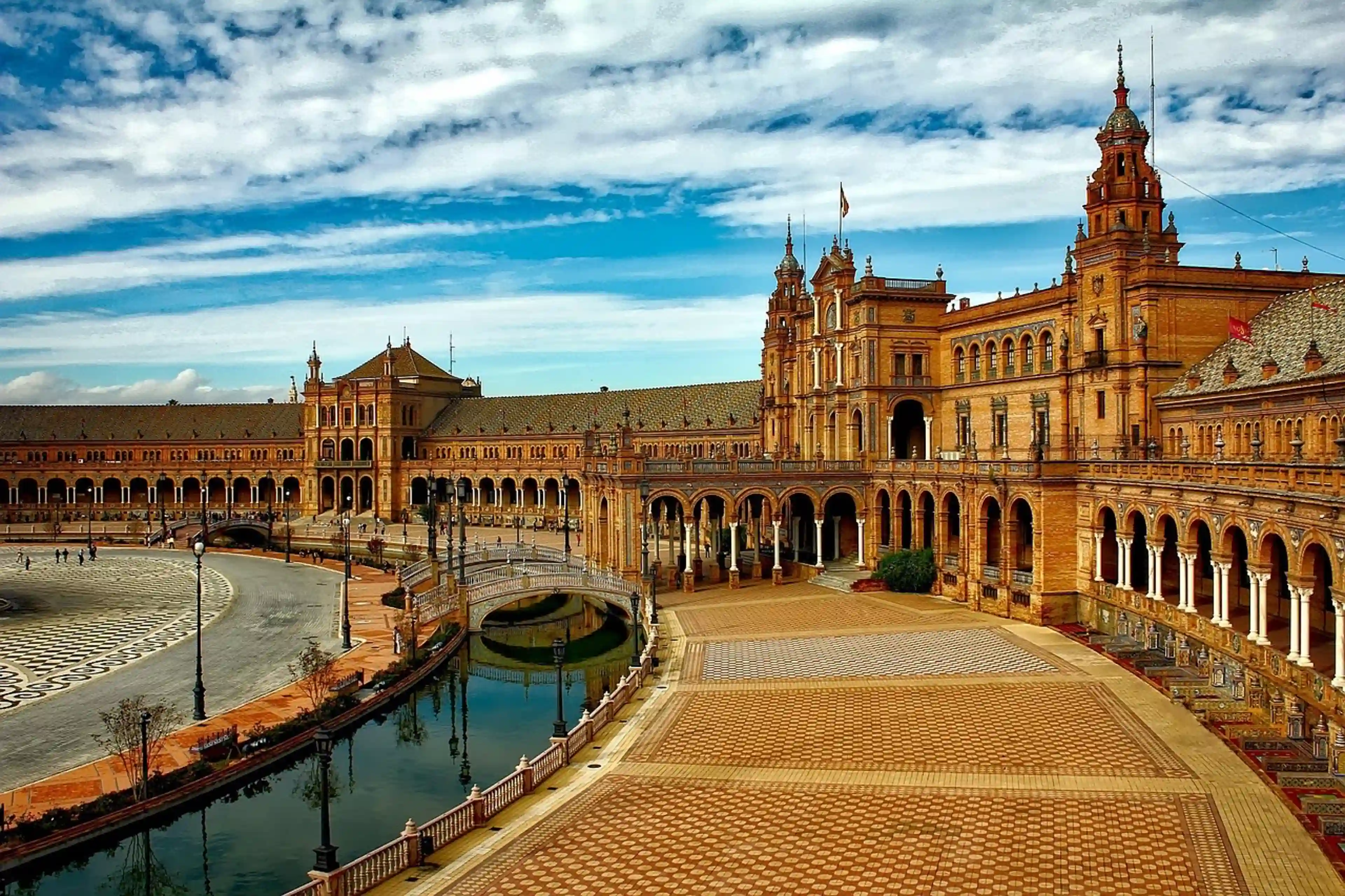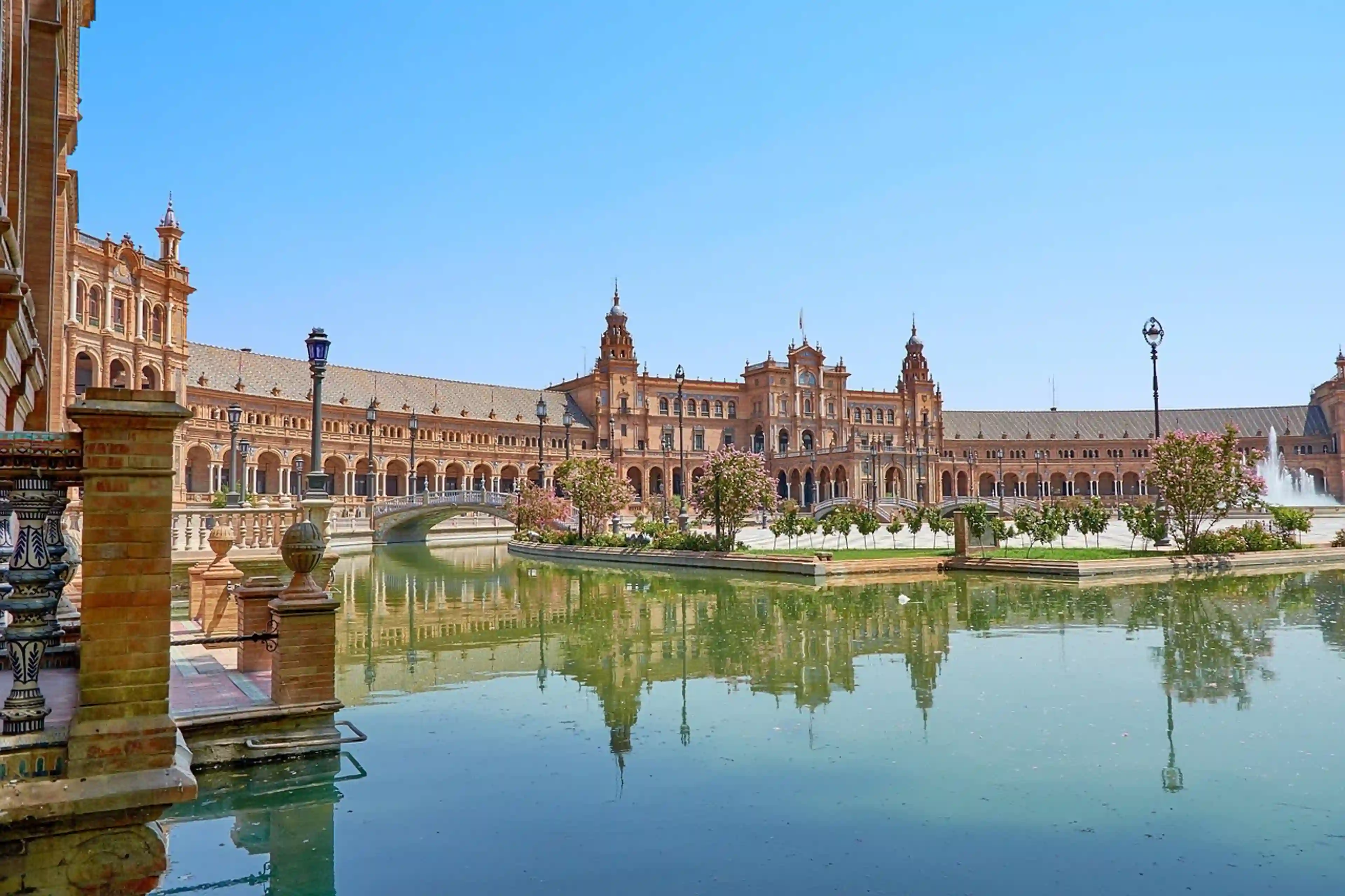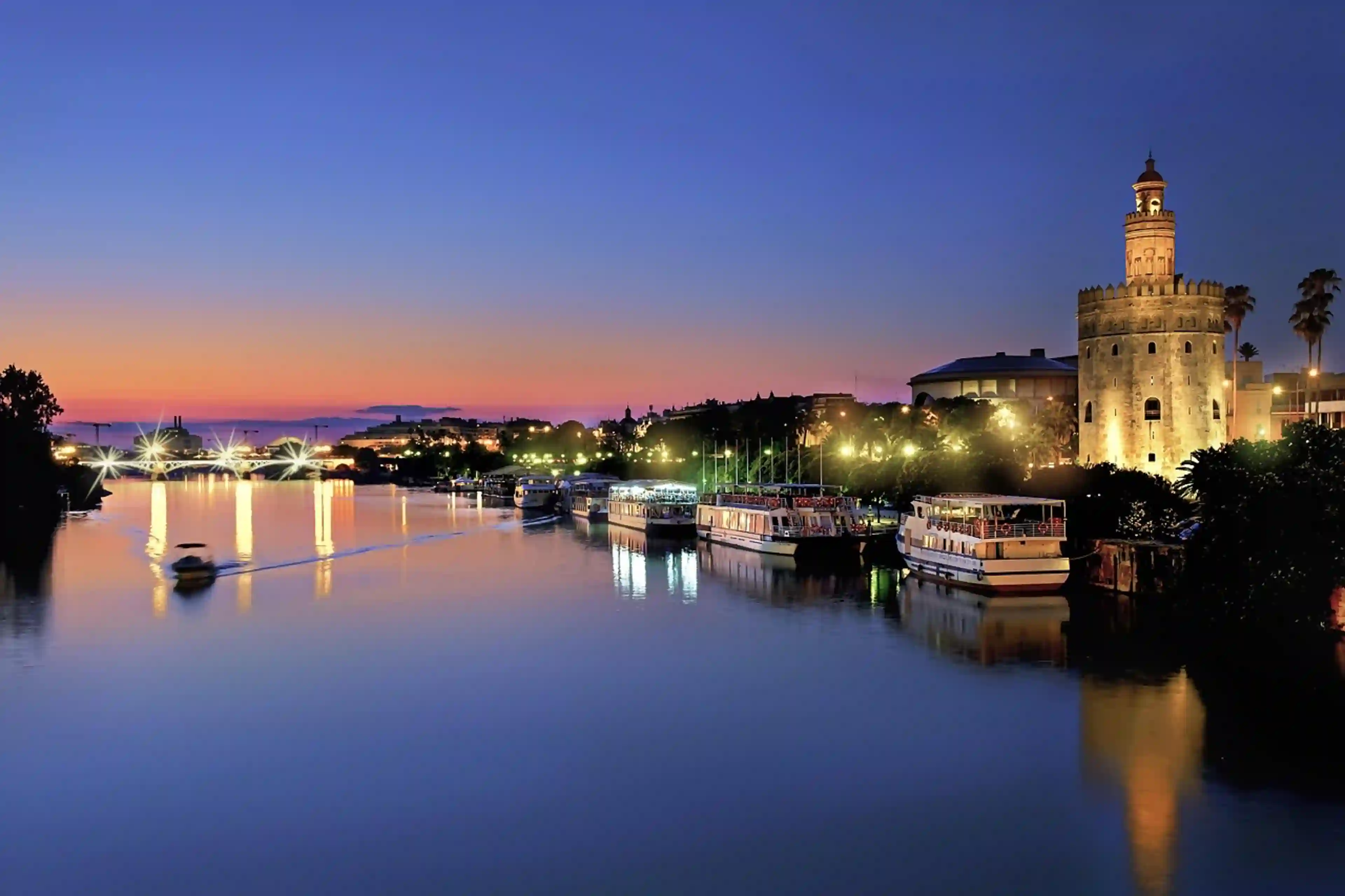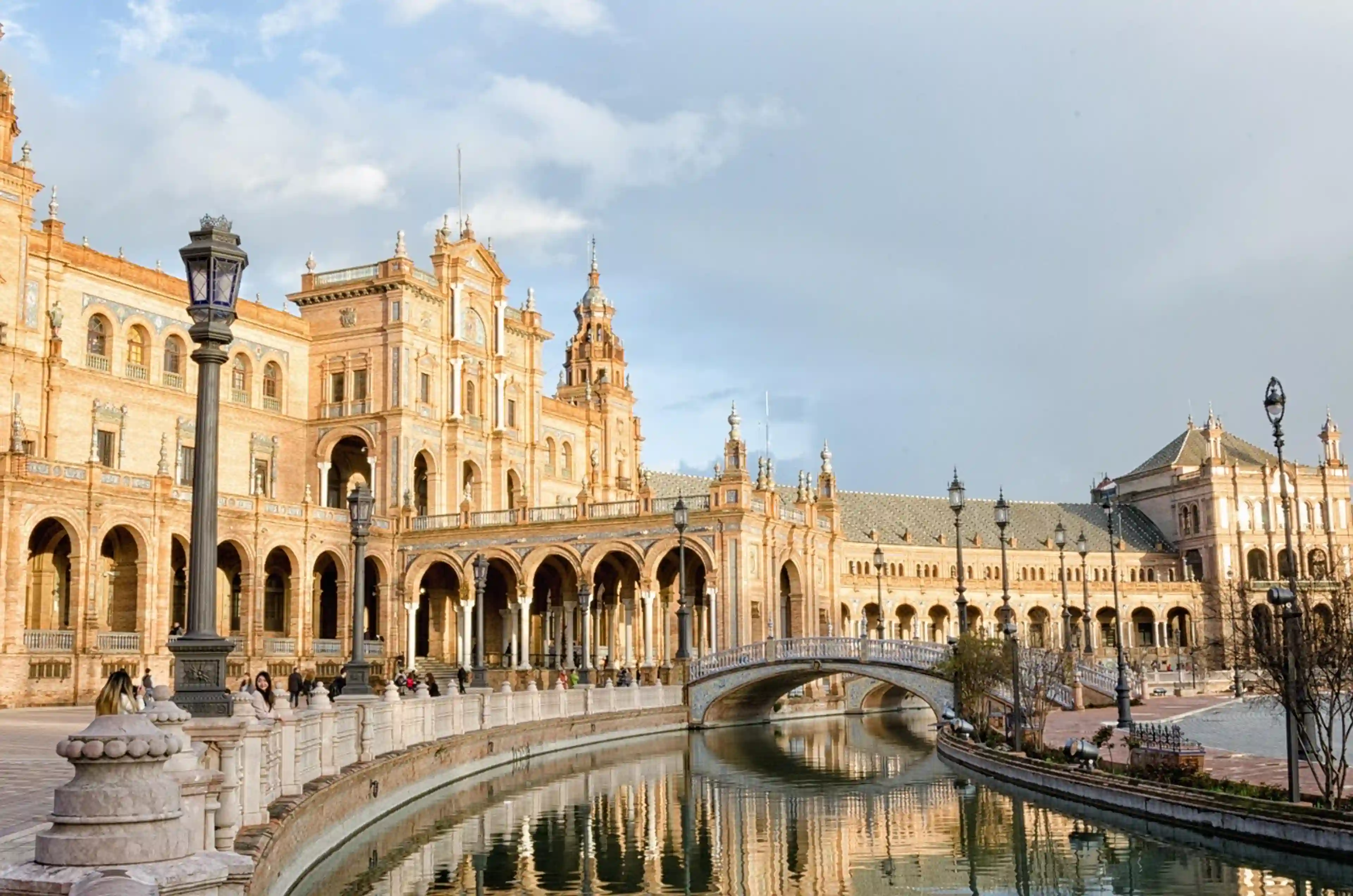Seville
General presentation
Top 50
History, culture & traditions
Travel advice
Wikipedia
Viator activities
Tiqets activities
Overall presentation
Capital of Andalusia, this iconic city in southern Spain captivates with its rich historical heritage, vibrant culture, and preserved authenticity. Traversed by the Guadalquivir, the only navigable river in the country, it forms the economic, political, and cultural heart of the region. Its historic center, with its majestic monuments and picturesque neighborhoods, bears witness to a glorious past where Christian, Muslim, and Jewish influences blended.
Geographical situation
Located in the southwest of Spain, the city is approximately 80 kilometers from the Atlantic Ocean. The Guadalquivir River runs through it, historically fostering its development as a major river port. This strategic position has allowed it to become a commercial and cultural crossroads between Europe and North Africa.
Ambience and character
The atmosphere here is both festive and warm, punctuated by age-old cultural traditions such as Holy Week (Semana Santa) and the famous Feria de Abril. The picturesque streets of the historic center, lively squares, and iconic monuments create a romantic and authentic ambiance. Neighborhoods like Santa Cruz and Triana particularly shine with their friendliness and dynamic nightlife, where the echoes of flamenco still resonate.
Climate
The Mediterranean climate with continental influences offers marked contrasts between the seasons. Summers are long and particularly hot, with average maximum temperatures reaching or exceeding 35°C from May to October. Winters remain mild, with minimum temperatures rarely dropping below 5°C. Rainfall concentrates between October and April, giving way to generally dry summer months.
Best season to visit
The most pleasant times are during spring (March to May) and autumn (September to November). During these seasons, temperatures are ideal for exploration, and the city comes alive during major events like Holy Week and the Feria de Abril in spring. Summer, while very sunny, can be uncomfortable for sightseeing due to the intense heat.
Access
The destination is easily accessible by several means of transport:
San Pablo Airport: Located 10 kilometers northeast of the city center, it accommodates national and international flights. The taxi ride takes 15 to 20 minutes, and bus connections also serve the city.
Santa Justa Station: The main railway hub, it serves as a major connection point for high-speed trains (AVE) linking the city to Madrid and other major Spanish cities.
Road network: A dense highway network facilitates access by car from all regions of Spain.
Internal transport
The public transport network offers several practical options:
- TUSSAM Buses: Covers the entire city and its outskirts with an efficient network
- Metro: Line 1 connects the city center to neighboring municipalities
- Tram: A line specifically serves the historic center
- Sevici Bikes: The bike-sharing service offers an eco-friendly and enjoyable alternative to explore the city
These multiple transport options allow for easy movement and full enjoyment of all the attractions of the destination.
Top 50
Wikipedia
Viator activities
Tiqets activities



